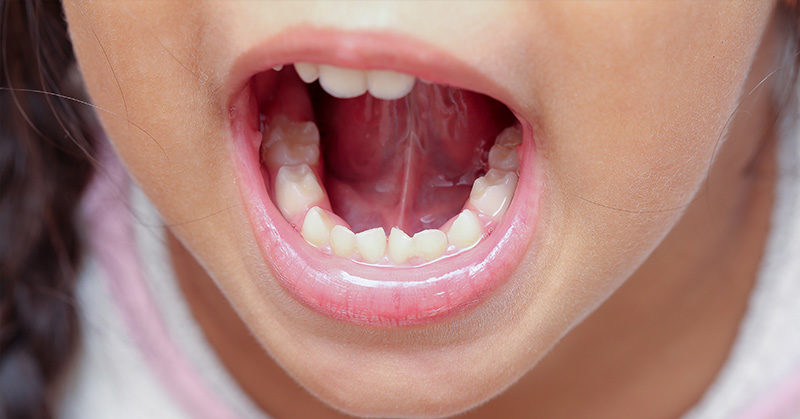Since the beginning of existence, environmental changes have forced both animals and humans to evolve and adapt. This process is called natural selection, and it produces organisms that are more likely to survive and reproduce [1]. Rapid evolution describes genetic changes that occur over only a few generations [2].
Rapid evolution is important because if a species cannot adapt quickly enough to environmental changes, they risk extinction. Because of modern medicine and technology, however, there has been less pressure on humans to evolve. Despite this, scientists recently revealed that humans have been evolving at a faster rate than at any point in the last 250 years.
Rapid Evolution
An investigation published in the Journal of Anatomy has shown an increase in multiple genetic changes in humans. These changes include:
- The prevalence of spina bifida occulta (the opening of the sacral canal)
- Abnormal connections between two or more bones in the feet.
- Increasing absence of wisdom teeth
- The near disappearance of the thyroidea ima artery (a branch of the aortic arch)
- Increased presence of the fabella, a small bone in the back of the knee joint [3].
Rapid Evolution: The Median Artery
One of the most significant of these changes is the prevalence of the median artery. This artery is first formed in the mother’s womb, and is the main vessel that supplies blood to the forearm and the hand. After gestation, however, it disappears, and the radial and ulnar arteries replace it.
For this reason, most adults don’t have a median artery. Since the late nineteenth century, however, an increasing number of people are retaining it. This means that they have three arteries in their forearm.
According to the researchers, this trend will continue. Thus, the median artery will be a common feature in humans eighty years from now. Dr Teghan Lucas at Flinders University in Australia is one of the main researchers in the investigation. She says that this study demonstrates that humans are evolving at a faster rate than at any point in the last 250 years.
“Since the 18th century, anatomists have been studying the prevalence of this artery in adults and our study shows it’s clearly increasing. The prevalence was around 10% in people born in the mid-1880s compared to 30% in those born in the late 20th century, so that’s a significant increase in a fairly short period of time, when it comes to evolution.” [4]
Lucas says that this rapid evolution could be because of mutations of genes involved in the development of the median artery. It may have also evolved because of health problems in mothers during pregnancy. Likely, he says, the reason is both.
Either way, by the year 2100, most people will have a median artery in their forearm.
Read: Eight go mad in Arizona: how a lockdown experiment went horribly wrong
Is This Rapid Evolution a Good Thing?
Having an extra artery in the arm can be a good thing. Senior author of the paper, Professor Maciej Henneberg, says that having a third artery increases overall blood supply, and can also act as a replacement in surgical procedures in other parts of the body.
He adds that this rapid revolution in modern humans is the perfect example of how we’re still evolving. He points out that people born more recently have a higher prevalence of the median artery than people from previous generations.
“We’ve collected all the data published in anatomical literature and continued to dissect cadavers donated for studies in Adelaide and we found about one third of Australians have the median artery in their forearm and everyone will have it by the end of the century if this process continues,” he explained [4].
No More Wisdom Teeth?
Another interesting result of this rapid evolution is the disappearance of wisdom teeth. According to Lucas, changes in our diets are causing our faces to be shorter and our jaws to be smaller. This means that there’s no room in our mouths for wisdom teeth.
For this reason, some babies are now being born who don’t have any wisdom teeth at all.
“This is happening in time as we have learnt to use fire and process foods more. A lot of people are just being born without wisdom teeth,” she said [5].
As humans continue to evolve, then, perhaps newer generations will never have to undergo the discomfort of having their wisdom teeth removed. If that is the case, this rapid evolution is certainly a positive outcome for humanity.
Keep Reading: Menopause Could Explain Human Evolution—and Lead to a New Role for Women
Sources
- https://www.nature.com/scitable/definition/evolution-78/#:~:text=One%20mechanism%20that%20drives%20evolution,likely%20to%20survive%20and%20reproduce.
- https://www.frontiersin.org/articles/10.3389/fevo.2014.00017/full
- https://onlinelibrary.wiley.com/doi/10.1111/joa.13224
- https://news.flinders.edu.au/blog/2020/10/08/forearm-artery-reveals-human-evolution-continues/
- https://www.independent.co.uk/news/science/wisdom-teeth-evolution-humans-flinders-university-processed-food-b907634.html

